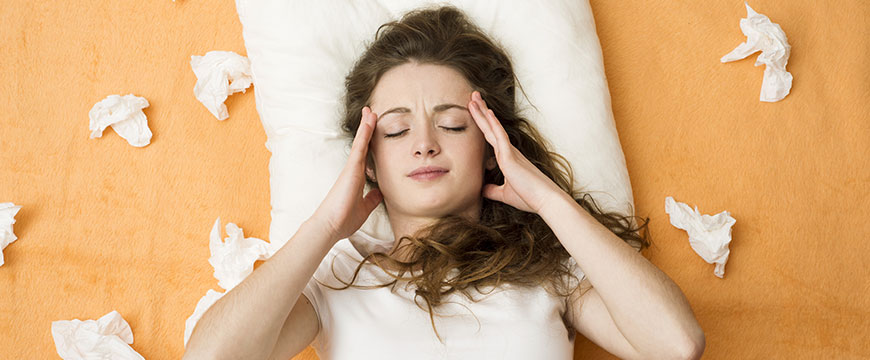
If you are wondering, can allergies cause headaches? Yes, they can. The headache symptoms include throbbing pain, nausea, and localized pain in areas such as the sinus and the face. In some cases, you have a throbbing or stabbing on one side of the head. In rare cases, you will have nausea.
The symptoms are usually worse when exposed to bright light.
Which allergies cause headaches?
According to an allergy specialist doctor, the headaches can be brought about by plenty of allergies, with the common ones being:
Allergic rhinitis: Also known as hay fever, allergic rhinitis is one of the leading causes of seasonal and indoor nasal allergies. The headache often comes about as a result of a blockage in the sinuses.
Food allergies: There is a direct relationship between food and headaches. When you take certain foods such as chocolate, artificial sweeteners, and aged cheese, they will mess with your stomach, which will, in turn, trigger a migraine in some people.
Experts believe that the headache is often due to the chemical in the food that triggers the pain and messes up the stomach.
Histamine: The body produces histamines in response to an allergic reaction. As they are fighting the allergens, the histamines decrease the blood pressure, which has been shown to lead to headaches.
What is the treatment for the headache?
Prevention is always better than cure, so before we even get to know the treatment of the condition, you must prevent it from coming about in the first place. If you know your allergy triggers, you should stay away from them. For example, if you are allergic to a certain food, stay away from it.
The same thing applies if you are allergic to pollen or any other material. Besides staying indoors when the pollen count is high, other things you can do to avoid headaches due to seasonal allergies include:
- Install a dehumidifier
- Keep the furnace filter clean
- Vacuum and dust the house regularly
- Remove the carpet from the living space
- Wash as soon as you are back from the outside
Take allergy medications
If it’s too late to prevent coming into contact with the allergen, you should try controlling the condition. How do you do it?
Use antihistamines: From their name, antihistamines stop histamine production, a chemical produced by the body upon contact with an allergen. The antihistamines lessen the allergy symptoms.
Use decongestants: There are plenty of decongestants you can use to open up your stuffy nasal passages and ease the sinus pressure. When taking the decongestants, avoid steroid nasal sprays as they have been shown to worsen headaches.
Try allergy shots: Here, you will need to visit an allergy clinic and have allergy shots administered to you. The shots have been shown to cut back the headaches, and they become less severe.
What else should you do?
Besides the above, drink plenty of fluids that will keep the mucus thin. Water is the best fruit to take, but you can also take green tea that not only thins out the mucus but also contains natural antihistamines, which comes in handy at fighting allergy symptoms.
You also should rinse out the nasal passages to remove the allergens from the nose while cleaning the nasal lining.
When should you see a doctor?
Although most allergy headaches go away, sometimes they are too severe, and you have to see an allergy doctor Manassas VA. You should see a doctor if the headache is preventing you from going on with your regular life. Is the headache so severe that you can’t go to work or do any other thing? It’s time to see a specialist.

